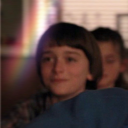
🌈nico \ 21yo \ infp \ 🇵🇸 ☮️ discussing production updates and S5
880 posts
Owens, Cancer, Peter, Regenerative Healing And The Cure
Owens, Cancer, Peter, Regenerative Healing and The Cure
So, the mysterious Peter Owens has been haunting me lately. And now, I have a theory about him.

I think that Peter Owens was Owens’ son who may have had cancer, and that Owens’ involvement with HNL and Henward’s kidnapping/testing on Henward in the lab was likely connected to Owens trying to save Peter and find a cure for cancer.
Let’s get into it.
So. Why would Peter Owens have cancer and what evidence is there to support the idea of Peter having cancer?
Well, as far as how Peter Owens got cancer goes, Hopper talks about Agent Orange causing cancer in the children of Vietnam war veterans such as himself, which is what happened to Sara.

Hopper even namedrops “Uncle Sam” during that scene, versus Sam being named Sam Owens:

So, there’s a chance that Peter’s cancer was the result of Owens being involved in the Vietnam war, or Owens simply being exposed to some other chemical, or even just a genetic predisposition to cancer passed down to Peter (something we’ll come back to later in this post when I talk about Fringe.)
And regarding the other evidence to support Peter having cancer, Owens has So Much disease and cure and cancer imagery surrounding him, right down to talking about “stopping the spread” re: the gate and talking about replication all the time.
Owens’ connection to the supernatural is almost aways tied to references of “spreading” and “disease,” and he’s specifically focused on stopping things from spreading- much like cancer:

And he also talks about a "cure" in the context of a virus/disease spreading:

And Owens also has this scene where the other scientist is talking about pesticides vs Hopper talking about how Agent Orange was touted as a herbicide- which connects Owens to that Hopper cancer scene yet again:

Owens also refers to possessed Will as “son”- possessed Will, who currently has a “disease” replicating in his body and taking him over and killing him:

And that shot of Hopper in the stairwell after Sara died from cancer versus the shot of Owens in the stairwell and the two being paralleled- which makes sense of Owens, like Hopper, also lost a child to cancer:

And I also talked in this post about how Owens “gets”/understands what it’s like to lose a son. And Owens also talks AGAIN about “getting it,” and this time it’s SPECIFICALLY in the context of Will having a “disease” replicating in his body and killing him:

And the next scene RIGHT after that scene where Owens talks about “getting” what it’s like to have a son replicating with something inside of him, we get this shot of Nancy’s tape and SPECIFICALLY we get the line from Owens about stopping the spread AGAIN:

And to top all of this off, OWENS is the character who drops the word “cancer” and who compares the spread of the UD to cancer:

Owens’ son having died of cancer would also explain why he’s not willing to let Will die from the “virus”/shadow particles:

Especially with that “say that to me again” line from Owens- that’s not a rational, “here’s the scientific reason why I disagree with you,” or even “hey, killing kids is morally wrong,” instead, it’s an immediate emotional response that lacks context as he’s not even just like. being emotional and saying “hey killing kids is bad,” instead, he just gets emotional and makes a threat but doesn’t provide any specific reason for it.
That scene has always felt a bit off to me, like there’s something we’re missing, like we’re missing some reason why the other scientist should know not to say something like that to Owens Specifically. Especially since the scientists all shut up for a bit after Owens says that/there’s clearly some weight to his words/something that the audience isn’t aware of.
Which, that would make sense if those other scientists knew about what happened to Peter/him dying of cancer. After all, it would be an obvious dick move to suggest letting a young boy die of a spreading disease to a dude whose son died of cancer.
Long story short, the spread/cancer imagery is CONSTANT with Owens, and so are the references to him losing a son.
Now that we’ve established that the basis/subtext is there for Owens to have a son that died of cancer, that brings up the question of why would Henward be necessary for Owens to try and cure cancer?
Well, James and I were chatting awhile back about Henriette Lacks, after I’d mentioned that I thought there was a connection between the cancer references in ST vs Vecna’s regenerative healing, as Vecna’s regen healing seems to work a lot like cancer cells/might be what caused his strange appearance, as a lot of his skin seems to resemble tumors, with him even having what looks like random TEETH on his skin, which is something often seen in tumors.

And when we look at Henrietta Lacks, her cells, which were taken from a cervical cancer biopsy, were the first immortal human cell line that reproduced infinitely. Henrietta’s cells were used to study cancer treatments and how to stop the spread of cancer without having to test on an entire living person, and instead just being able to test on the cells themselves, as usually, human cells die pretty quickly after being separated from the person, but Henrietta’s cells did not, and instead, kept dividing. ST regen healing seems to act basically like cancer cells but with an even faster rate of growth/replication, which is exactly what Henrietta’s cells were.
So, if Henward had regen healing, and if Henward’s cells both a.) replicated like cancer cells and b.) replicated even faster the way that Henrietta’s cells did/were basically immortal even when removed from the body, then Henward would have been the perfect subject to use to research a cure for cancer.
This may also tie into Brenner’s claim that he was trying to help/cure Henward/Henward talking about how his parents wanted to cure him- if Henward’s regen healing was similar to Henrietta Lacks’ cells, it’s worth noting that the properties of Henrietta Lacks’ cancer cells were the result of being infected with HPV. So, if Henward also had some sort of disease that caused the same sort of thing & made him a sickly child & if Brenner/Owens claimed that they could cure him the same way they planned on curing cancer but needed his cells to do so/to test the cure on/ro develop the cure. Especially since Henrietta’s own cancer cells are what killed her- so there’s a chance that Henward was at risk of the same sort of thing happening/that he didn’t quite have proper regen healing before the lab but DID have those cells (and then lab experiments/gettinf yeeted to the yellow UD kickstarted in the actual regen healing we see with Vecna).
Plus, yknow. The name Henry vs Henrietta… and the fact that Henrietta Lacks’ cells were taken without her consent vs Henward being kidnapped and taken to the lab, clearly without his consent.
So, again, somebody with regen healing is basically a prime candidate for being used to try and cure cancer.
But that same person could also be a path to near immortality. Because after all, like I said, regen healing cells act like cancer cells, and cancer cells ignore the signals that tell them to self destruct/they’re basically immortal, and Henrietta Lacks’ cells even moreso, as they replicate even faster and again, ignore those destruction signals. So, they’d basically be the key to immortality if there was such a key. If an entire person could do what a single cancer/Henrietta Lacks cell did (which is likely exactly what Henward’s regen healing does, or something similar), with some tweaking, there’s a chance they could become immortal/regenerate when injured the way Vecna does etc.
If Brenner ended up using this research to give himself regenerative healing/pursuing immortality for himself, it would explain how he survived the Demogorgon attack in S1, and it would explain why Matthew Modine is convinced that Brenner STILL isn’t dead. It would also give Brenner a motive for his experiments that goes beyond mere scientific curiosity, which would explain why he was willing to go to such extreme lengths for his research.
And if Brenner wanted to experiment on Henward’s cells for the purpose of his own immortality versus Owens wanting to do it to try and find a cure for cancer, it would explain how the two of them could have such opposing morals but end up working together, because even if their goals were totally different (immortality vs cancer cure), they both needed to take the same path/experiment on Henward.
After all, whether you like/trust Owens or not, based on what we see from him in the show, he DOES seem to have moral lines that Brenner does not.
For example, during NINA, he talks about how he’s compromised his principles/morals by helping with NINA & how he sees a traumatized little girl, something he’s clearly distressed by, unlike Martin. He also says that he’s only doing this because Martin said that it was the only way:

So, how does a guy like that, who clearly has some sort of moral code/who does genuinely seem to care about peoole like El and Will in a way that Brenner does not end up working for HNL/working with Brenner/experimenting on Henward?
Well, if it was Owen’s son’s life on the line… it would make sense for that to be the one thing that could get Owens to compromise his morals and experiment on Henward- after all, in that screenshot from earlier, Owens lists his family and his principles together- two things that seem to be equally important to him. So, if one of those things (his family/his son) was in danger, would he be willing to compromise the other thing (his morals/principles) to save his family? I think he would.
And to top all of this off, it would also track perfectly with the Fringe parallels (with Fringe being a huge source of inspiration for ST/constant direct parallels).
**FRINGE SPOILERS**
In Fringe, scientist Walter Bishop’s son, Peter, is dying of a rare genetic disease. Walter is trying desperately to find the cure, but fails, and his Peter dies. However, Walter has been using a window into another timeline to watch his alternate timeline self (nicknamed Walternate) *also* work on a cure for Peter- and the alternate Peter isn’t cured yet, but is still alive when Walter’s Peter dies. And one day, when watching Walternate work on a cure, Walter notices that Walternate found the cure, but Walternate was distracted and thought that his cure/experiment had failed. So, Walter went into the other timeline and planned simply on curing alternate timeline Peter, but ended up taking him/kidnapping him back to Walter’s own timeline, and keeping him there and raising him as if he was his actual Peter.




And Owens is EXTREMELY paralleled to Walter. Like. Constantly. Costuming parallels, dialogue parallels, entire scene/shot parallels. It’s literally neverending and constant. Go watch even 5 minutes of like any Fringe scene with Walter, and you’ll notice it. Both Victor and Owens are deeply Walter paralleled to the point of almost verging on plagiarism LMAO.
So, this would track with Owens kidnapping a child (Henward) to try and save his son/trying to cure his son’s genetic disease, just like Walter did (except the child Walter kidnapped was Peter himself, although Walter did also do experiments on other children, such as Olivia), and possibly even crossing timelines to do so, which has me staring at all of the Henry vs Edward weirdness…
This is also likely why Owens’ son is named Peter- it’s meant to be a reference to Peter Bishop (which, it’s also interesting that Peter and Walter have the last name “Bishop,” as there’s the Bishop chess piece & the idea of their last name being connected to chess is referenced in Fringe, which has me staring at Henward talking about how Brenner moves people around like pieces on a chessboard to manipulate them- which would make sense if Brenner was manipulating Owens and his son & leading Owens to believe that they were pursuing a cure for cancer when in reality Brenner was pursuing his own immortality/regeneration).
So, yeah! I won’t be surprised at all if S5 reveals that Owens’ son, Peter, died from cancer.
And what El says about Brenner not letting Henry go- if Peter died, it would make sense to let Henry go/for Owens to want to let Henry go, because he doesn’t need Henry anymore because he can’t save Peter anymore.

But if Brenner wanted to continue his research/continue pursuing his own immortality, it would make sense for him to not let Henry go, and would explain why it’s Brenner Specifically who is listed as not letting Henry go.
This would also explain why Owens doesn’t seem to be present in the lab during any of El’s flashbacks, not even back in 1979/any of the NINA memories- if he stopped working on the project after Peter’s death…
It would also explain why Hopper introduces El to Owens as if they’ve never met- because El hasn’t met him:

Especially since Sullivan refers to El as “Brenner’s little pet,” and doesn’t include Owens in that regard, and Owens’ bitchy line about daddy-daughter time/Owens not approving of what Brenner did to El/his relationship with her:


However, there’s also the matter of the Peter that Brenner asks for over the intercom:

And I think there’s a few options here in the context of this post:
1.) The Peter that Brenner asks for is simply another random Peter, not Peter Owens, but is delivering subtext about Peter Owens (ie, lab Peter died, delivering the subtext that Peter Owens also died, just in a different way).
This could also be a reference to the timeline weirdness that we see with the massacre, as Peter in Fringe is basically the cause of the two timelines colliding/opening a hole between the two of them.
2.) The Peter that Brenner asks for IS Peter Owens, working as an orderly in the lab. He may have died during the 1979 massacre, and so, then while that doesn’t explain why we didn’t see Owens at all in the flashbacks pre-1979 massacre, if Peter died then, it would explain why Owens is absent from HNL in El’s post-1979 HNL memories. And also, it may actually still explain why Owens was absent during the 1979/pre massacre NINA flashbacks- if Peter’s cancer HAD been cured/treated and he was simply working there or a patient receiving treatment there or BOTH, then Owens wouldn’t necessarily need to work at the lab anymore, as his goal (saving Peter) had been accomplished, and then Peter died during the 1979 massacre.
3.) Henry or Edward was brainwashed into believing that he was Peter Owens/Owens’ son in an attempt to get him to cooperate.
Especially with what I’ve talked about before re: The Changeling and other things and the idea of Edward believing that he IS Henry. If Henry wasn’t useful for whatever reason and they needed Edward instead, and needed Edward to believe that he’s Henry, it would be helpful if the actual Henry believes that he isn’t Henry and is, in fact, Peter.
This would also explain why Henward’s fake name for casting was “Peter Ballard”.
And while option 3.) does admittedly sound far-fetched, when we look at Fringe, Olivia (who is very similar to Henward/blonde child who got experimented on against her will) is swapped with her alternate timeline counterpart/has her alternate timeline counterpart’s memories implanted into her head (staring at NINA & those bts pics that show that Young Henward has a NINA suit in his costume wardrobe and also staring at the multiple versions of the Creel murders that we see/Vecna’s memories of the murders being different from Victor’s retelling), because one Olivia has powers that the other Olivia does not have, and in order to get the Olivia with powers to cooperate willingly/use her powers, they have to convince her that she truly is the other Olivia.
Which, that would also track with that line about 001 struggling with his powers at first until suddenly he came in one day and everything changed- especially since that dialogue is in the context of memories, specifically, sad/angry memories- so, if Edward had some of Henry’s memories of the Creel murders implanted into him and believed that they were his own memories/believed that he was Henry… and then Henry possibly being led to believe that he was Peter in some way/Henry even simply becoming a proxy for Peter in the sense of them experimenting on Henry instead of Peter (to test cures in case something goes wrong so that they don’t risk Peter’s life) even if he doesn’t truly believe that he’s Peter. Which, that means that they would have to give Henry cancer- or, mess with his regen healing to have the same effect, OR infect him with shadow particles which have been very cancer-paralleled, as we’ve seen with Will in S2.
Anyway! Much to think about. Admittedly that last bit is a fair bit of fun speculation, but overall, I really do think there’s some solid connections here regarding Owens, Peter, Henward, Fringe, and cancer. Also, I won’t be surprised if we get a father-son vibe between Henward and Owens in the lab, which may explain part of why Owens has so many constant Victor parallels, with Victor being Henward’s actual father vs Owens possibly being a father figure, especially if Henward was ever brainwashed to believe that he was Peter.
-
 mike-weezer-apologist liked this · 11 months ago
mike-weezer-apologist liked this · 11 months ago -
 albatros-brumaire liked this · 1 year ago
albatros-brumaire liked this · 1 year ago -
 stranger-comet liked this · 1 year ago
stranger-comet liked this · 1 year ago -
 justscrollingignoremyexistence00 liked this · 1 year ago
justscrollingignoremyexistence00 liked this · 1 year ago -
 aboutwiseheart reblogged this · 1 year ago
aboutwiseheart reblogged this · 1 year ago -
 lane-justlane liked this · 1 year ago
lane-justlane liked this · 1 year ago -
 byersts liked this · 1 year ago
byersts liked this · 1 year ago -
 conflictofthemind reblogged this · 1 year ago
conflictofthemind reblogged this · 1 year ago -
 ladyofmornien liked this · 1 year ago
ladyofmornien liked this · 1 year ago -
 sparks-olivarpente reblogged this · 1 year ago
sparks-olivarpente reblogged this · 1 year ago -
 chirpsythismorning liked this · 1 year ago
chirpsythismorning liked this · 1 year ago -
 shippingfangirl013 reblogged this · 1 year ago
shippingfangirl013 reblogged this · 1 year ago -
 aemiron-main liked this · 1 year ago
aemiron-main liked this · 1 year ago -
 heroesbyler reblogged this · 1 year ago
heroesbyler reblogged this · 1 year ago -
 hedgehog-cynder liked this · 1 year ago
hedgehog-cynder liked this · 1 year ago -
 emily6 liked this · 1 year ago
emily6 liked this · 1 year ago -
 apiceofbuttermorty liked this · 1 year ago
apiceofbuttermorty liked this · 1 year ago -
 v-i-r-i-d-i-a-n liked this · 1 year ago
v-i-r-i-d-i-a-n liked this · 1 year ago -
 karabas-zhirobas liked this · 1 year ago
karabas-zhirobas liked this · 1 year ago -
 melllll222 liked this · 1 year ago
melllll222 liked this · 1 year ago -
 luxerit liked this · 1 year ago
luxerit liked this · 1 year ago -
 mikaelhetfield liked this · 1 year ago
mikaelhetfield liked this · 1 year ago -
 aemiron-main reblogged this · 1 year ago
aemiron-main reblogged this · 1 year ago -
 stranger-theory reblogged this · 1 year ago
stranger-theory reblogged this · 1 year ago -
 stranger-theory liked this · 1 year ago
stranger-theory liked this · 1 year ago -
 byler-invested reblogged this · 1 year ago
byler-invested reblogged this · 1 year ago -
 byler-invested liked this · 1 year ago
byler-invested liked this · 1 year ago -
 chris-12-tin liked this · 1 year ago
chris-12-tin liked this · 1 year ago -
 multifan-bitch liked this · 1 year ago
multifan-bitch liked this · 1 year ago -
 karasthoughtss liked this · 1 year ago
karasthoughtss liked this · 1 year ago -
 governmentcoverups liked this · 1 year ago
governmentcoverups liked this · 1 year ago -
 calcified--heart liked this · 1 year ago
calcified--heart liked this · 1 year ago -
 familiartome reblogged this · 1 year ago
familiartome reblogged this · 1 year ago -
 aemiron-main reblogged this · 1 year ago
aemiron-main reblogged this · 1 year ago -
 breathing99 liked this · 1 year ago
breathing99 liked this · 1 year ago -
 elkdiaries liked this · 1 year ago
elkdiaries liked this · 1 year ago -
 readerofportrait liked this · 1 year ago
readerofportrait liked this · 1 year ago -
 sp7eeds liked this · 1 year ago
sp7eeds liked this · 1 year ago -
 justarandpinthesky liked this · 1 year ago
justarandpinthesky liked this · 1 year ago -
 l1ghth0p3 liked this · 1 year ago
l1ghth0p3 liked this · 1 year ago -
 gravelgarglejuice liked this · 1 year ago
gravelgarglejuice liked this · 1 year ago -
 thegothm0ther liked this · 1 year ago
thegothm0ther liked this · 1 year ago -
 loversdontlie86 liked this · 1 year ago
loversdontlie86 liked this · 1 year ago -
 heroesbyler reblogged this · 1 year ago
heroesbyler reblogged this · 1 year ago -
 greenfiend reblogged this · 1 year ago
greenfiend reblogged this · 1 year ago -
 greenfiend liked this · 1 year ago
greenfiend liked this · 1 year ago -
 stranger-chichka reblogged this · 1 year ago
stranger-chichka reblogged this · 1 year ago
More Posts from Conflictofthemind
Do you think Will won't play a role in defeating Vecna? I've seen many posts about this and how Will should not kill Vecna or that he should not contribute to his death because his character isn't someone who kills and... while I get the point, what do you expect him to do then? Just spying on Vecna for other people, so other people can track him down and kill him? Or is his role just standing up for himself and winning but not necessarily killing Vecna, so it is more about him spying again to help others and the other characters will finish the blow?
I think one of the reasons why I do not understand this situation is that it seems like it is limiting Will's narrative in the story. Because I've even seen posts about how Will shouldn't even kill the Mindflayer or the Demogorgon because it would mean that he'd be using violence/killing (especially if he uses gun), and I'm just wondering what do you guys want him to do then? Just being able to win by standing up for himself without killing anything or any monster?
Will Byers and Vecna: A Discussion on Free Will, Determinism, and The Nature of Evil in S5
Hiii,
I had to noodle on this a bit to figure out how to better articulate what I'm thinking about Will's role in relation to Vecna in S5. So, thank you for that! Yes, of course, Will is going to play a role in defeating Vecna. As for the "how and why" of your response, I'm going to expand on a point I asserted in the post (you are commenting on) HERE: "If Will is possessed in S5 (for a large portion of the show), they won't be able to effectively address Will's unaddressed conflicts...."
When I wrote that, I was mentally referring to the possession mechanics of S2, in which Will was mentally suppressed and pulled out as needed by Vecna. Given his friends' primary solution for this was knocking Will unconscious until they could figure out how to cut the connection, I don't think it's wise for the writers to relegate Will's screentime to laying in a bed again for 3+ episodes in the final season. However, I do think Will is going to be threatened by possession again in S5, not in a way akin to S2, but as in haunted-by-a-malevolent-entity-sending-him-into-an-identity-crisis way.
Will still has a remnant of Vecna in his mind, granting him insight on how and what he thinks. That is not something to be taken lightly. The saying goes, "A door opens both ways". On the one hand, this is an asset for his friends, as you pointed out, for spying purposes. On the other hand, it is a dangerous burden, as Will is exposed to Vecna's encroaching influence. Given Vecna used Will as a tool for his nefarious deeds in S2, there's nothing stopping him from trying to do so again.
As I mentioned in this post HERE, Will is kept alive in S1 for a reason. Vecna targeted him in S1 and S2 for a reason. He is the only person Vecna doesn't want to kill for a reason. The writing of the show implies the reason is related to building Vecna's new world order. It's important to observe how the Upside-Down post-Vecna arriving looks like Mars, while the Upside-Down post-Will arriving looks like Hawkins. As myself and many others have theorized, Will has some form of creation powers. Thus, Will is essential for the execution of Vecna's world domination. The primary question that arises from this kind of conflict is: who is the one in control of Will's decisions?
At the foundation of is question is the concept of free will. Free will being one's capacity to make decisions without the constraint of external forces, like fate. There are three agreed upon aspects of free will as of now (See Stanford Encyclopedia of Philosophy HERE):
"You have the freedom to do otherwise," or you can do or not do.
"The power of self-determination," or you are the arbiter of your own actions and must accept the punishments (moral responsibility).
"Free will is compatible with determinism".
To explain the last aspect called compatibilism, I'm going to bring in an example from A Wrinkle in Time, a confirmed inspiration for S5. Mrs. Whatsit explains to the protagonists why the Happy Medium (a fortuneteller and a pun for compatibilism itself) shouldn't show them the future, so they can find out how to defeat the villain. She argues that they would be no better than those on Camazotz, the planet subjugated by IT, since they "would have no lives of our own, with everything planned and done for" them (190, Kindle version). She compares life to a sonnet, it "has a strict form, but freedom within it" and "what you say is up to you" (191, Kindle version).
As the Duffer's have discussed, Will's coming of age is complicated because of supernatural factors and societal factors. The exertions of the supernatural forces only compound Will's other issues. Will has been at the mercy of Vecna, the Mindflayer, and the Upside Down, since he was 12. He is victim of supernatural kidnapping and possession. Will is used to feeling powerless over his own body, as well as his own life. This why Will still thinks he is a mistake (relating to his sexuality, his loss of innocence, and himself as a person). This is why Will still thinks he deserves blame for things out of his control (relating to his low self-confidence and past abuse). Will's coming of age is dependent on resolving the a critical identity crisis related to free will: whether or not he can reclaim control over his life and self by choosing to overcome the past.
Speaking of control, if we are discussing free will then it is only apt to discuss its converse, determinism. Determinism argues we are governed by external forces, fate or choice, and thus "free will" is an illusion. Vecna's function, as an all-knowing being, falls within this philosophical fold. In 4x07, he shows Nancy the future, on purpose, so she can tell El the "exactly what she sees". This drives home the point that regardless of what they try to do their loss is inevitable. However, it is equally important the Hawkins gang chooses to fight anyways. In this instance, as well as in the show as a whole, the characters choose to do their best in spite of the external forces (the supernatural, the past, conformity, homophobia, racism, classism etc.) working against them.
As of S4's end, determinism appears to be the victor, but in a show that emphasizes the importance of one's choice the hero's ultimate victory will shift the needle back to compatibilism or, as A Wrinkle in Time calls it, a "happy medium" (lol). With narrative foils, such as Will and Vecna, the importance of compatibilism, especially one's free choice in the face of the past, is more clear. The writers juxtapose Will and Vecna to establish how their social experiences influenced their trajectories and relationship with the world.
Both Vecna and Will are considered "sensitive," holding a deep capacity to feel and sense emotions. However, both boys are considered "broken," or abnormal, by societal standards. While Will's perceived homosexuality and Zombie Boy status made him a target, the writers have yet to unpack what led to Vecna's feelings of disenfranchisement. It seems very likely this is connected to Vecna's most powerful memory (which fills him with anger, pain, and hate), as well as his favorite phrase, "Don't be afraid. It will (all) be over soon".
Vecna became resentful, due to feeling misunderstood. His father was oblivious to his struggles, his mother hated him, and the community considered him to be "different". No one loves him unconditionally like Joyce, Jonathan, and Mike do for Will. Faced with rejection, Vecna rationalizes the he is the victim of hypocritical social constructs like conformity (he isn't wrong). Then, he decides to become a opposing external force, dictating people's fates, to impose the same feelings of suffering and misery that he feels upon others. Vecna believes he was the inevitable product of the world and people in it, i.e. blaming El for "making him" in 4x09 (despite this being the consequence of him trying to murder her—remember moral responsibility? Yeah, he has none).
Vecna/Henry/001's origins highlight an debate within the theme of good vs evil: whether one is inherently evil (born) or not (raised). Based on the writer's past history with other antagonists (Billy, Max's abuser), as well as their Vecna setup, the show is arguing that evil is learnt and perpetuated through cycles of abuse and terror. For example, Billy's father is abusive, homophobic, and racist >> Billy learns how to be abusive, hypermasculine (overcompensation), and racist >> Billy intimidates and terrorizes his step-sister Max + her Black boyfriend Lucas. The only reason why that cycle ended is because of Billy's redemption and thus death.
Redemption is a sticky topic. Does Billy's death excuse his actions or bring back the people he killed? No. However, it does show that one can choose to be good, selfless and brave, through love. The Duffers, as I discussed HERE, mentioned that they are playing with the concept of redemption—whether the fandom likes it or not. When asked about whether Vecna is a bad seed or redeemable, Matt said, "I mean, no, that's up in the air. I mean, listen, we've talked a lot about him. I think we have a pretty good understanding of him, us and our writers. I mean, we probably talked about him more than anybody else. We know his whole prequel story, if you'll call it, we know. And, we're going to get into that. Get into that in [Stranger Things] 5. And, is there still any humanity left in him, that's the question".
Will is the ideal person to facilitate Vecna's redemption, not only because of his capacity to love and be loved but because of his struggles with free will and goodness challenge Vecna's determinist mindset and hate. Because of their supernatural connection, they are inextricably intertwined and will likely interact frequently in S5. Through those interactions, they can learn from each other, pushing the limits of their understanding and individual growth.
Nothing about Will's character arc (that I described) necessitates him personally killing Vecna. Vecna will die, of course. All the abusers in the show ultimately die. Like Billy. Like Brenner. However, Max never killed Billy. And, El never killed Brenner. Will isn't an exception. He's not going to choose hate over love, when that is what the show is writing against. Will's empowerment is not about him exerting force over another being; he would be no better than Vecna. Will's empowerment arises from him choosing to be good and choosing to be himself despite the past, conformity, supernatural terror, and bigoty. It's Will's heart—his compassion—that makes him courageous and radically kind which will, in turn, allow him to reclaim his life and body.
Hope that clarifies things and you see that this kind writing choice wouldn't limit Will's involvement in the plot. (The protagonist killing the "villain" is the cliché anyways) Come back soon~
P.S. I don't see the point of killing the Mindflayer when it appeared to be an innocuous entity in the flashback. It wasn't harming anyone, until Vecna began using it as a weapon. The goal should be to break its connection to Henry, not eliminate the entire Hivemind. Do you think they should die, anon? If so, why?
I was one of the people that responded to this and her group is STILL stalking my Twitter account four days later
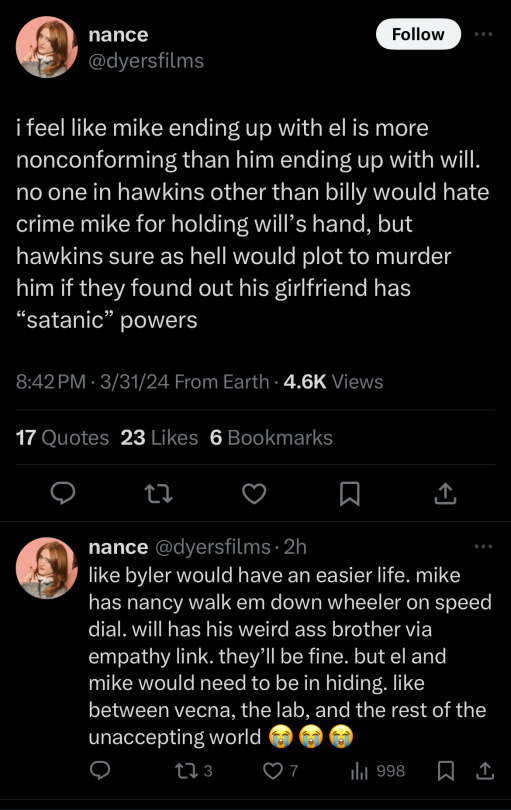
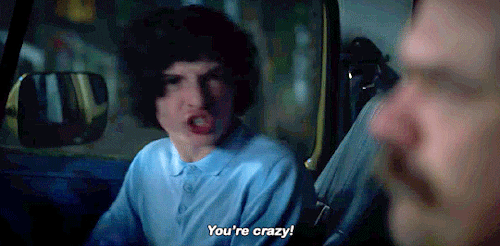
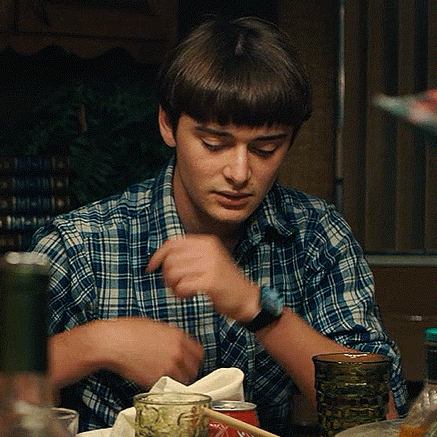
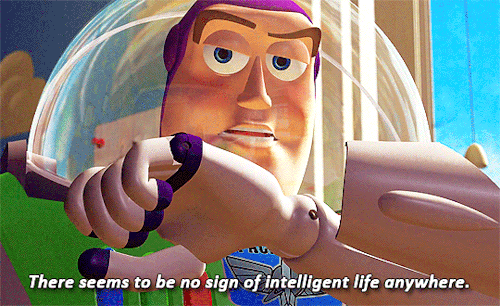
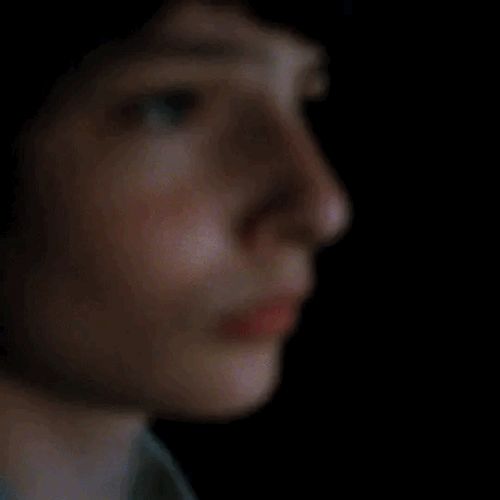
Omg I’ve heard both accounts too! I just went with the wheelchair thing but I knew I heard about an actual murder from some other posts as well.
It’s interesting to me that it would have made Peter the first victim of Henry. More parallels to how Will is the first victim of Vecna!Henry. And they would have been around the same age too. Whatever is going on with this Peter thing, it’s definitely connected to Will as well.
Thinking about Petergate I remember that when the play first came out and it was still being sort of re written people were talking about how there was a kid found dead with his eyes like Vecna's victims in Nevada before the Creels arrived in Hawkins... and then later on people started saying the boy was not dead but in a wheelchair...? I wonder if they changed that or if people got it wrong or what happened but this boy being Peter Owens would make so much sense at this point... Idk if it's like he's Henry's real first victim or maybe he just left him paralyzed and didn't kill him completely or idk what the hell happened but how can that be just a coincidence
So Henry killed someone in Nevada... Owens lives in Ruth, Nevada... Owens had a son called Peter and the government took his stuff when investigating the murders... Henry's classmate was found killed exactly like Vecna's victims.............
*Petergate has joined the chat*
Does anyone know if they call the classmate by name?
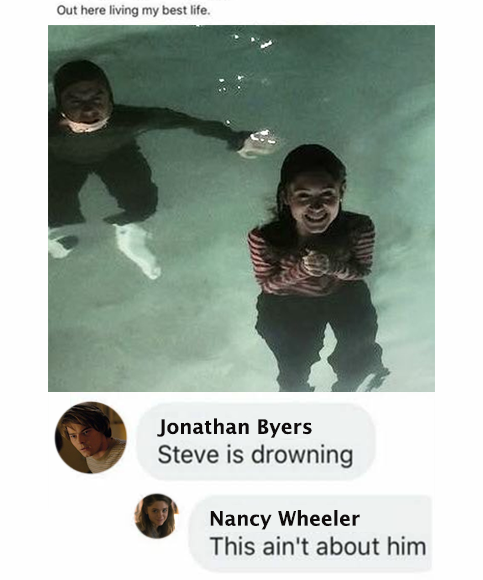
it's nancy's world we're just living in it